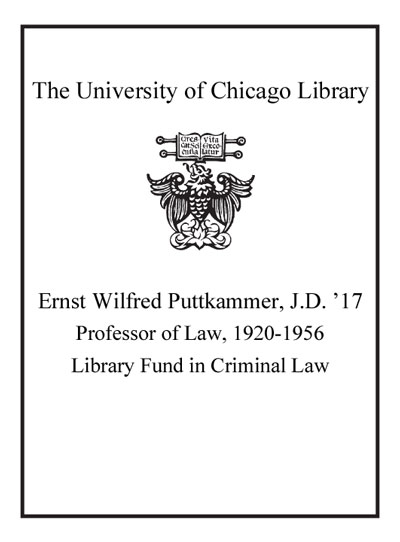Review by Publisher's Weekly Review
In recent years, Mauer, the assistant director of the Sentencing Project in Washington, D.C., has raised one of the few voices in the media decrying the explosive increase in the U.S. prison population, and especially the high percentages of incarcerated young black men. In this sober, nuanced analysis, he assesses how we have come to lock up offenders "at a rate 6 to 10 times that of most comparable countries"Äa rate that represents a 500% increase since 1972. Meanwhile, "about the best that can be said is that crime rates in some categories are no worse than they were when only one sixth as many inmates filled the nation's prisons." The major culprits for the expanded rolls, he contends, are mandatory sentencing statues and the "war on drugs" that began in the early '80s. Yet the evidence is too murky to prove that increased incarceration leads to a lowered crime rate, Mauer argues. With some crimes, notably drug peddling, offenders are often "replaced" on the streets, since "a thriving market exists with the potential for lucrative profits." His policy solutionsÄjobs, educationÄmight be dismissed as "hopelessly liberal," he acknowledges, but they're what work for the middle class; while they may not fully address the complexities of the underclass, there is evidence that they help. He also argues for increased drug treatment. Pointing out some potent unintended consequences of overcrowded prisons, Mauer cites displaced criminal justice resources, significant African-American disenfranchisement and family disruption (including increased sexual bargaining power for unimprisoned black men, and thus more illegitimacy). (Aug.) (c) Copyright PWxyz, LLC. All rights reserved
(c) Copyright PWxyz, LLC. All rights reserved
Review by Kirkus Book Review
A meticulously researched rejoinder to the 'war on crime.'' The Sentencing Project, a nonprofit organization that promotes criminal justice reform, has monitored a literal explosion since 1973 in both incarceration rates and sentencing severity, ironically as real crime rates fluctuated and declined. Assistant director Mauer, a former consultant to the National Institute of Corrections, galvanizes the reader with both detail and directness as he examines closely how this Kafkaesque state of American justice developed and its untenable implications for our future. Mauer explicitly concerns himself with the curious intersections of race and class within this situation, examining the role of social unrest in the 1960s and other factors in conflating various 'crime in the streets' scares, which faded as repressive measures directed largely against urban minorities remained, and the ultimately thwarted incarceration reform movement of the 1970s. Unsurprisingly, a good portion of his narrative concerns the 'war on drugs' (as in one aptly titled chapter, 'Crime as Politics'). Mauer demonstrates the labyrinthine methodology by which antidrug hysteria conceals both a means of underclass social control (particularly in the wake of post-1973 'mandatory minimum' laws) and the constant inflation of corrections and law enforcement spending. Mauer's exposure of the deep race-based inequities in the prosecution of this war is upsetting and powerful; yet arguably the book is hobbled here by its rather dry and exhaustive approach, which could prove anathema to the readers who most need to consider the injustice and civil rights erosion which they tacitly support. (The book's array of sophisticated charts, graphs, and footnotes provide a dizzying counterpoint to Mauer's coolly deliberative prose.) Additionally, Mauer discusses the unintended consequences of maximum incarceration, such as the diversion of law enforcement resources and the disenfranchisement of minority populations through loss of voting rights; he concludes by offering possible new frameworks for thought and modulation within a seemingly intractable problem. Mauer provides a sobering, crucial voice amid the obfuscatory, insensate 'tough-on-crime' din.
Copyright (c) Kirkus Reviews, used with permission.
Review by Publisher's Weekly Review
Review by Kirkus Book Review


